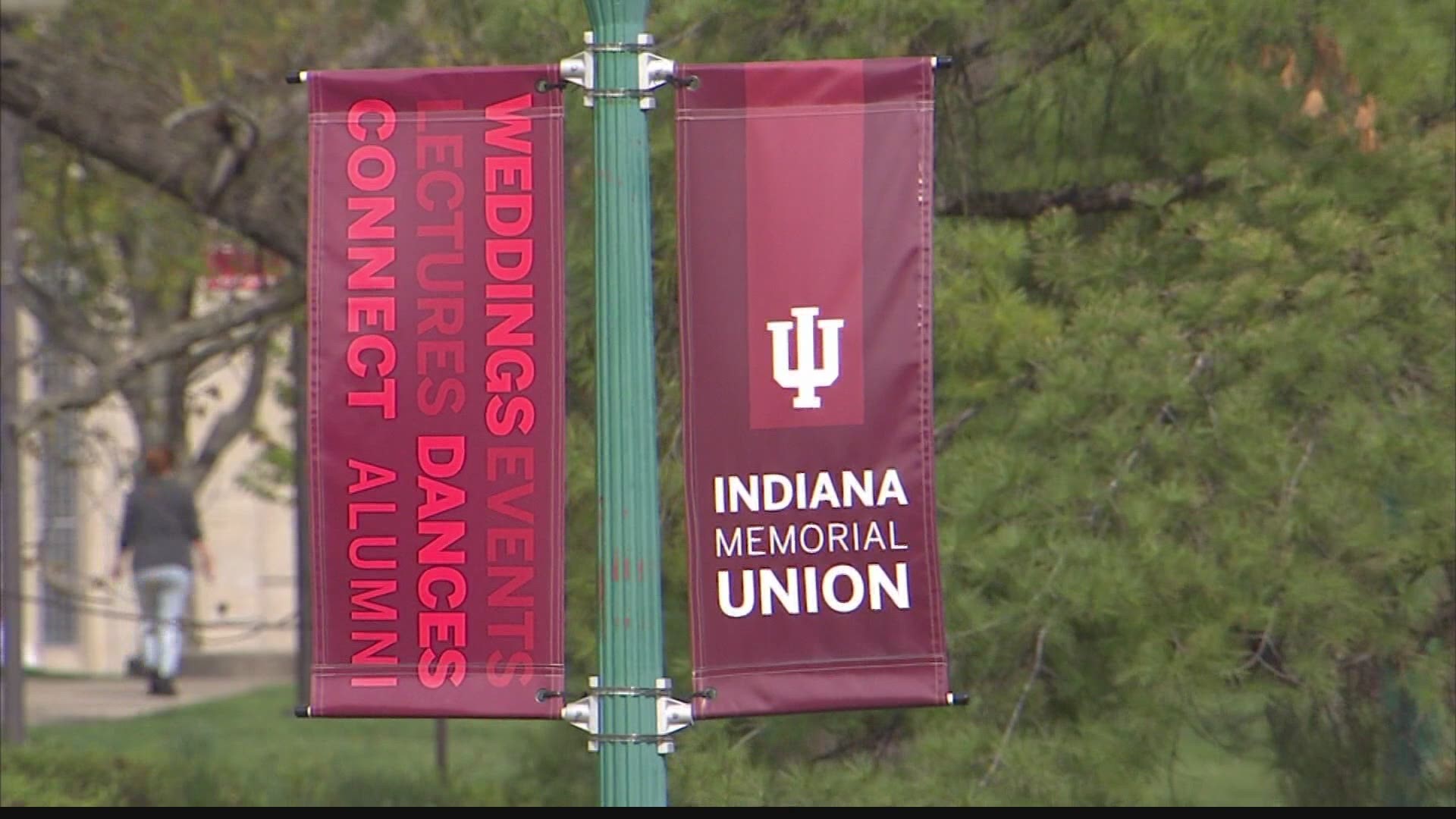BLOOMINGTON, Ind. — NOTE: The above video is from a previous report on IU's COVID-19 vaccine requirement.
A group of 19 Indiana lawmakers is asking Gov. Eric Holcomb to use his executive powers to stop IU's COVID-19 vaccination requirement for all students, staff and faculty returning to its campuses across the state in the fall.
Their letter to the governor takes aim at the fact the vaccines only have Emergency Use Authorization at this point. They feel a vaccine should have to have full FDA approval. They also worry students will drop classes or be ostracized if they don't comply with the requirement or that faculty members might be terminated.
Indiana University sent 13News a statement in response to lawmakers' request of the governor:
Indiana University is continuing to prioritize the safety and wellbeing of students, faculty and staff in response to the pandemic. Requiring a vaccine for the IU community is in keeping with the other measures that have supported the health of our campus communities for more than a year. The requirement, similar to those for vaccines required by state law, provides the standard exemptions for medical and religious reasons. IU’s vaccine policy is a clear path forward that will ensure a higher rate of immunity and the opportunity to give our students, faculty and staff a more typical university experience.
Lawmakers' challenge to the university's requirement began with Republican representatives Curt Nisly from Milford and John Jacob from Indianapolis. They wrote a letter to the university claiming the requirement violates a new state law banning immunization passports by the government.
The lawmakers go on to make claims that "there are many people that have died and had very adverse reactions to the COVID shot" as they question if IU is willing to take responsibility if something happens to a student, staff or faculty member.
Indiana University responded on Tuesday to the questions and claims made by Nisly and Jacob. A statement, sent to 13News, reads:
Indiana University shares the same goal as our faculty, staff, and students in seeking a return to a more normal fall semester, with full attendance at in-person classes, athletic and other events, and social activities without masking and social distancing. If we hope to do this while continuing to avoid large outbreaks, the science is clear that we need a much higher rate of immunity within our IU community. The vaccine is the only way to make sure that happens by the time students return. The policy mandating the vaccine reiterates that we are not requiring a vaccine “passport”; with everyone vaccinated, that would be unnecessary.
HB1405 that passed the Indiana General Assembly’s recently-concluded session did not include public universities in its definition of governmental entities. As co-author on the Indiana vaccine passport ban legislation, State Rep. Chris Campbell noted, state universities and colleges are not covered under the bill. She added that “they know what they need in their environment to keep others safe.”
We are confident this is the best policy for our campuses, utilizing vaccines that are authorized by the WHO, the FDA and a federal Scientific Advisory panel under Emergency Use Authorization. The Equal Employment Opportunity Commission has also confirmed in guidance that employers can require employees be vaccinated. We will continue to follow Indiana law and provide religious and medical exemptions as warranted, in keeping with policy for the six other vaccinations required by state law on our campuses.
Our focus remains on the safety and wellbeing of our IU community.
13News checked the language of the bill, and it does not identify public universities as a government entity.
Indiana Attorney General Todd Rokita Wednesday issued an opinion on the IU policy, saying it "clearly runs afoul of state law." He pointed to legislation passed by the General Assembly earlier this year that prohibits public institutions from mandating proof of vaccination.
“Indiana University’s policy clearly runs afoul of state law—and the fundamental liberties and freedoms this legislation was designed to protect," Rokita said.
Rokita also noted Purdue University's policy, which only requires vaccination for optional activities and allows students the chance to opt for regular testing if they don't want to get the vaccine or provide proof of vaccination, does not violate the new law.
IU issued a statement to 13News Thursday in in response to Rokita, saying in part:
In yesterday’s opinion, the attorney general affirmed that it is legal for us to require a vaccine, including one under an Emergency Use Authorization (EUA). His opinion questioned specifically the manner in which we gathered proof of vaccination. Although we disagree with that portion of his opinion, we will further consider our process for verifying the requirement.
13News also reached out to the governor's office about the letter asking him to use his executive powers. A spokesperson for the governor told us Holcomb will review it after he returns from his trip to Israel.
NOTE: According to the CDC, from Dec. 14, 2020 to May 17, 2021 more than 273 million doses of COVID vaccine were administered in the U.S. There were 4,647 people who died and also happened to have received the COVID vaccine at some point. The CDC and FDA physicians reviewed those cases and found not even a casual link to COVID-19 vaccines. However, recent reports indicate a plausible causal relationship between the J&J/Janssen COVID-19 Vaccine and a rare and serious adverse event—blood clots with low platelets—which has caused deaths.
What other people are reading:
- Family of victims in Peru triple murder speaks out about inconceivable loss
- Gov. Holcomb visiting Israeli Prime Minster Tuesday and Wednesday
- Young Hoosier writes Under Armour asking the company to make girls' golf clothes
- NBC News investigation: Some police still 'hogtie' people despite risks
- Yes, vaccinations increased in Ohio after the vaccine lottery was announced

